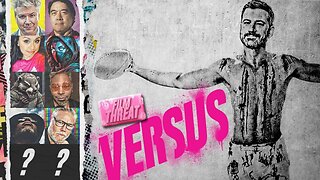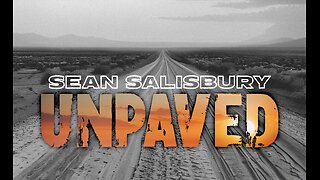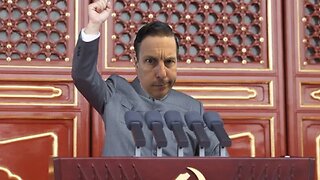Premium Only Content

1984: A Taste of Totalitarianism
📚 Exploring Food in Orwell's "1984" 🍽️
Have you ever wondered how food can symbolize resistance and the quest for individuality in a dystopian society? George Orwell's iconic novel "1984" offers a fascinating glimpse into a world where totalitarianism reigns, and even the taste of food is controlled by the government.
In this fictional society of Oceania, the government rations goods and manipulates information to maintain control over its citizens. Common commodities like coffee, gin, and sugar are replaced with artificial substitutes, and people have lost their sensory memories of real food due to years of propaganda and saccharine consumption.
Winston Smith, the novel's protagonist, works for the government and is tasked with rewriting historical articles to align with the Ministry of Plenty's predictions. Food in Oceania is far from delightful; it's utilitarian and unpalatable, with propaganda effectively flattening people's palates. Food, like many other aspects of life, becomes a tool of control.
However, as Winston begins to question the government and commit "thoughtcrime," he stumbles upon a Pandora's box of illicit foods. His affair with Julia, a fellow dissident, leads to the discovery of black market chocolate—a taste he hadn't experienced since childhood, before Oceania and Big Brother.
As the myth of Big Brother starts to unravel, so does the illusion of a functioning ration system. Winston begins to notice evidence of dissidence and the black market everywhere he looks or smells. Real coffee, wine, milk, jam, and sugar become tantalizingly accessible through Julia's connections within the party. But indulging in these forbidden pleasures brings them closer to betraying their loyalty to the Party.
The novel "1984" powerfully illustrates how the taste and aroma of real food become symbols of rebellion against a totalitarian regime. In a world where every aspect of life is controlled by the government, food serves as a tangible reminder of what's been lost—the freedom to choose, savor, and remember flavors from the past.
This theme isn't confined to fiction alone. The article draws parallels with real-life experiences in totalitarian regimes like Cuba and the Soviet Union, where rationing, corruption, and black markets are a familiar reality. Despite propaganda, people's memories of traditional food persist, and they seek ways to access forbidden goods.
In "1984," food becomes a powerful symbol of individuality, resistance, and the enduring human desire for authenticity. It's a reminder that even in the darkest of times, the taste of real food can evoke memories and spark a longing for freedom.
What are your thoughts on food's role in "1984"? Have you ever experienced the impact of rationing or black markets in real life? Share your thoughts and experiences below! 📖🍴 #1984 #FoodInLiterature #Resistance
-
 26:00
26:00
Stephen Gardner
1 hour ago🔥ALEX JONES BOMBSHELL: The BIGGEST MYSTERY in Charlie Kirk death EXPLAINED!
16.9K35 -
 LIVE
LIVE
The HotSeat
1 hour agoWhat's Next? Understanding What You Are Up Against.
848 watching -
 LIVE
LIVE
Film Threat
19 hours agoVERSUS: DISNEY DUMPS KIMMEL + HIM SPORTS HORROR | Film Threat Versus
80 watching -
 LIVE
LIVE
The Tom Renz Show
1 hour agoTrump, RFK & The Major Announcement - Autism?
257 watching -
 8:36
8:36
Dr. Nick Zyrowski
6 hours agoHow to Tighten Loose Skin Naturally (No Surgery Needed)
22K2 -
 1:17:34
1:17:34
Sean Unpaved
4 hours agoNFL Sunday Showdown: Browns' Brutal Blitz Best? Dart's Daring Debut Dawns, Bears Breakthrough!
40.2K -
 6:33
6:33
Tundra Tactical
4 hours ago $0.45 earnedStupid Gun Myths & Questions Ep. 1 🛑NEW SERIES!!🛑
18.8K1 -
 1:00:25
1:00:25
Jeff Ahern
2 hours ago $0.36 earnedMonday Madness with Jeff Ahern
11.5K1 -
 1:34:59
1:34:59
Russell Brand
3 hours agoTrump Hails Charlie Kirk A Martyr As 100,000 PACK Arizona Stadium To Honor “American Hero” - SF637
188K52 -
 1:58:55
1:58:55
The Charlie Kirk Show
4 hours agoThe Charlie Memorial Aftermath | Benny Johnson, Sortor, Brick Suit | 9.22.2025
181K155